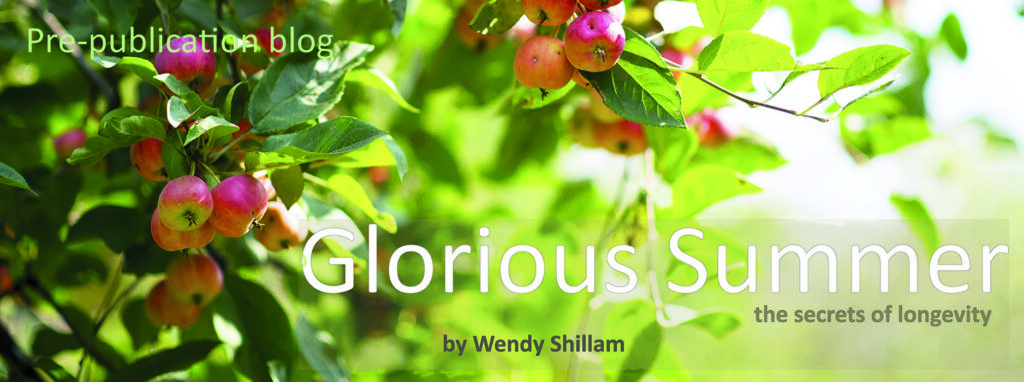Our level of health as we grow older and even whether we grow old at all, is dictated by many things. We are born with a genetic make-up that can be improved by healthy living or damaged by stress and pollution. But it would be wrong to consider that longevity is simply a health issue. How long we live and how healthy we are is also a political issue. For example, we can not necessarily control the amount of pollution we are exposed to, or how stressful our lives are.
Society divides us. It is quite possible that you can live your whole life without intimate knowledge of what it is like to grow old. We receive no education about ageing, save that of our own observation. Even doctors are given scant instruction in order to help or support their older patients. What can make matters worse is that professionals and lay-people alike are bombarded with half-truths and inaccuracies about ageing that, in the absence of first hand experience, can lead to prejudice against others and self-neglect of ourselves as we go through life.
Yet, as individuals we do have the wherewithal to change things, either by modifying our own lifestyle, or by campaigning for change. About 20% of the voting population of the UK are over 65. This voting power should help to protect older people from unenlightened governments, and the self-interest and disinterest of commercialism. Big food and big pharma have a lot to answer for the health of the nation. Yet in mainstream media these issues are rarely discussed. Journalists are just as prejudiced as everyone else. The time-honoured way to commence an article about ageing is to observe that everyone is living longer these days. That is fundamentally incorrect. It is fake news!
During the course of my relationships with carers, rookie house doctors and district nurses, most of whom have been considerably younger than their charges, I have become aware that many of them fundamentally misunderstand what it’s like to age. Perhaps none of us understand until we ourselves reach these venerable uplands? Every time I read or hear something that doesn’t fit the evidence, I become more and more incensed. For example, many politicians and pundits mistakenly think of old age as a modern problem. I wish I had a pound for the times that I have read in official documents that we are all living longer. Longevity is not a new phenomenon, neither should it be seen as a problem.
In psalm 90, written about three thousand years ago, we find the origin of the apocryphal lifespan of three score years and ten, echoed in English literature by Shakespeare in Macbeth and by AE Houseman’s Shropshire Lad. But if we go back and examine Moses’ words, he tells us in the very next line that the strong live longer.
The days of our years are threescore years and ten;
and if by reason of strength they be fourscore years,
yet is their strength labour and sorrow;
for it is soon cut off, and we fly away.
Psalm 90; A Prayer of Moses the man of God 1391–1271 BCE
Today in the UK we can, on average, hope to live to the age of 76 or 78 (depending on our gender) ie. the twenty-first Century, first world lifespan does not greatly exceed that of a tribal Bedouin of second Century BCE. The sad truth is that in some regions of the UK life expectancy had started to decline, even before 2020. In 2019, in Barrow in Furness in Cumbria, the average lifespan was 11 years shorter than in neighbouring, more favoured districts.
You may think that today more people live to see their centenary, or their super-centenary (110 years). But, throughout history people have lived well beyond their eightieth year. Pliny documented many older figures in Roman history, such as the consul M Valerius Corvinos who died at 100 years. Cicero’s wife Terentia lived to 103 and he records Clodia as living to her 115th year. That would probably be enough to have earned her an entry in The Guinness Book of Records.
More modern studies of super-centenarians do not show any appreciable pattern of longevity increasing. The lucky ones who reach their hundredth birthday have always been just that – lucky.
So why do we have this feeling that there are more older people around these days, if lifespan is not increasing? The reason is that throughout history, but speeding up at the beginning of the twentieth century, there has been an impressive decline in infant mortality. In San Francisco in 1906 about 12% of the population died before their second birthday. Today that figure is below 1%. So there are just a lot more people around today, and simply by the law of averages, a lot more older people as well.
Sadly, it is the case that a small number of children still die in their infancy, as can be seen by the graph below, that shows just how mortality panned out in England and Wales between 1963 and 2017. You see a reduction of deaths in the first few years of life, and a corresponding extension in the number of people who are able to achieve their full lifespan.

Thus, on average, more people are reaching their natural lifespan, but it would be quite wrong to conclude that we are each living longer. In fact, lifespan hasn’t been increasing anything as fast as infant mortality has been decreasing and since 2010 lifespan in the UK has been slipping back. According to the Marmot Review in February 2020, female life expectancy declined in the most deprived 10 percent of neighbourhoods between 2010-12 and 2016-18 and there were only negligible increases in male life expectancy in these areas.
Hundreds of people will and always have lived productive and healthy lives far beyond the age of 65. Yet, ageism continues to be a very powerful prejudice, found within and outside the medical profession. Beware the young doctor who is too quick to condemn you as past it. Beware the ageist boss. There is a reason why it is now illegal to require job-seekers to put their age on application forms.
In the writing of this booki I have come to the conclusion that we should seek a longevity that is founded upon the premise of living an active and healthy life for as long as possible. We all age at different rates, at different times in our lives. Sometimes we discover a new lease of life. We all have the capacity to improve our physical and mental health at any age, even if we don’t have the capacity to get back to how we felt at twenty. We need to find a way to accept our limitations, but not necessarily to see them as final, or irreversible.
Ageing, unlike age, is not a linear process. For me, the most convincing argument for pursuing longevity is the evidence that ageing is mutable. We now know that each and every one of us share a Lazarus-like ability to rise from our sick-beds and go on to enjoy many more years. There are plenty of examples of people who suffer set-backs, but recover. Just because a fall has condemned someone to use a zimmer-frame, we now know that it is possible to regain the muscle strength and walk unaided, even at a late stage of life. There is now no mandatory retirement age. Part of the pleasure of ageing should be that work can cease to become a mere money-making chore and morph into something more challenging and engaging. Maintaining the mind is as important as maintaining the body. Feeling that we have purpose in life is possibly even more important.
It is wrong to say that we are all living longer these days. Lifespan is not increasing significantly each year, in fact in the UK it is probably now reducing. What is happening is that older people are becoming more vociferous and more noticeable in society. That can only be a good thing.
[1] Glorious Summer – the secret of longevity, by Wendy Shillam, will be published by Say Tomato! January 2022
This year I shall be maintaining a weekly blog, covering pre-publication excerpts from the book as well as a series of articles about the science and the scientists who have unlocked the secrets of longevity. Please register your interest by clicking on the mailing list below.
A beta reader is a test reader of an unreleased work (similar to beta testing in software), who gives feedback to the author, from the perspective of an average reader. If you’d like to help me get this book as good as it can be, I’d love to hear from you. The chapters will be ready from June onwards. I’m sorry there is no fee for this work, except a free copy of the finished book and an acknowledgement. This is not a commercial exercise. Say Tomato, the publisher of the book and of the website is run as a self-financed social enterprise. But I shall be eternally grateful for your help. Any profits from Glorious Summer will be directed into Say Tomato work for women over 40.
Contact me directly wendy@wendyshillam.co.uk if you are interested, giving a brief description of yourself and your reading experience. (It doesn’t matter if you haven’t done any beta reading before – avid readers make the best beta readers.) Thank you.


Wendy Shillam

Hi Wendy,
Very interesting and enlightening. Until now I realise I’ve just gone along with the prevailing view that we are living longer today, because I’ve never seen it challenged before. But what you say about childhood mortality decreasing and the impact of that makes perfect sense. I agree too that leading a purposeful life helps a great deal, or perhaps more fundamentally, appreciating life does have a purpose.
I heard someone say once on a radio programme that aside from good genes the ‘secret’ to her longevity was “staying relevant”, or something like that. I interpreted that as remaining interested and involved in life and developments and thinking about these things, rather than retreating into nostalgia and pining for the good old days. Another Bible writer, Solomon, counselled, “Do not say, “Why were the former days better than these?” for it is not out of wisdom that you ask this.” Ecclesiates 7:10. I’m inclined to agree no matter how challenging our times.
Looking forward to further instalments.
Thanks Alex,
We must all hope for the best! Staying positive is an asset in times like this.
Wendy